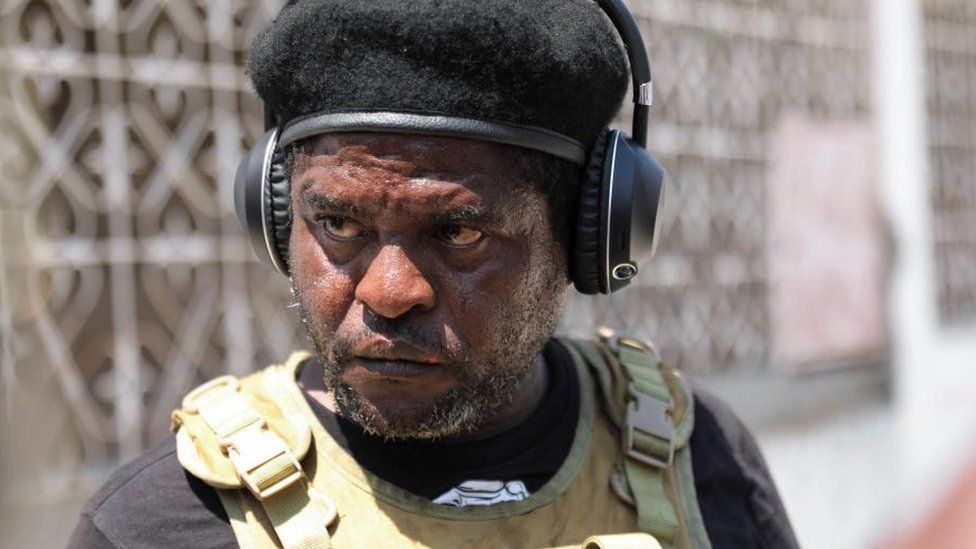Haiti: Gang leader Jimmy ‘Barbecue’ Chérizier demands peace talks role
One of the most influential leaders of gangs in Haiti has expressed openness to considering disarmament if armed factions were included in discussions aimed at establishing a new government.
Jimmy Chérizier, also known as Barbecue, commands groups that hold sway over much of the capital city, Port-au-Prince.
He warned of a potential escalation in the ongoing violence gripping Haiti but conveyed a willingness to explore solutions. Haiti, a nation in the Caribbean burdened by poverty and inhabited by over 11 million people, has lacked a prime minister since March 12th.
Ariel Henry stepped down after facing obstacles from armed groups preventing his return from Kenya, where he had finalized an agreement to bring in a military peacekeeping force to restore order.
Exploiting the absence of authority, gangs have expanded their influence across significant parts of the country, leading to a breakdown of law and order in many areas.
To chart a path back to democratic governance, a Presidential Transitional Council has been established with the support of neighboring Caribbean nations and the United States.
Mr Chérizier – the most prominent figure in a loose alliance of gangs known as Viv Ansanm (Live Together), which is in control of around 80% of Port-au-Prince – believes his group should have a seat at the table in any future talks.
He told Sky News: “If the international community comes with a detailed plan where we can sit together and talk, but they do not impose on us what we should decide, I think that the weapons could be lowered.”
He said he was “not proud” of the spiraling violence in Haiti, and warned the crisis could continue if groups like his – which rail against “corrupt politicians” – are not part of a future government.
He also said any Kenyan forces drafted into the country to bolster security would be considered “aggressors” and “invaders”.
The situation in Haiti has been described as “cataclysmic” by the United Nations in a report issued earlier this week.
It said there had been more than 1,500 people killed and 800 injured in the first three months of 2024.
The report detailed the “harrowing practices” of the gangs, which are accused of using extreme violence and sexual abuse as a means of punishment and control.
Aid groups have reported difficulty in getting food and water into the capital, warning that millions are unable to find sustenance, with some on the verge of famine.



